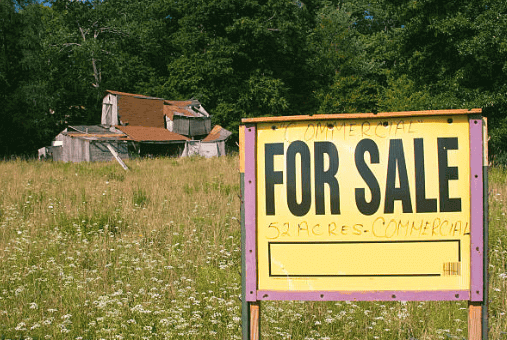Selling abandoned property in Florida can be complex, but it can be accomplished smoothly with the proper understanding of the laws and procedures involved. Selling abandoned property in Florida can be a complex process. Still, it can be accomplished smoothly with an adequate knowledge of the laws and procedures involved. Whether you stumbled upon an abandoned gem or inherited a forsaken parcel, understanding the nuanced process of selling these properties in Florida is crucial. This blog post unravels the intricacies of managing abandoned properties, providing valuable insights and essential steps to optimize your investment. From legal considerations to marketing strategies, we’ll guide you through what you need to know about selling abandoned property in Florida.
Few names shine as brightly in real estate investment as Steve Daria and Joleigh. Known for their sharp insights and strategic vision, they are significantly property buying in Florida. With their keen eye for potential and wealth of experience in real estate, they have become the go-to experts for providing beneficial solutions to many homeowners. Their knack for seeing value where others see challenges truly sets them apart in the bustling Florida market.
Key Points
- Understand the Legal Ownership of the Property: Before selling abandoned property in Florida, make sure you have clear legal ownership or the right to sell it. If ownership is unclear, you may need to go through probate or other legal processes to establish your rights.
- Inspect the Property’s Condition: Abandoned properties often have damage, mold, or vandalism issues. An inspection can help you understand what repairs may be needed before selling or determining its current value.
- Price the Property Competitively: Since abandoned properties are often seen as fixer-uppers, their price typically needs to reflect their condition—research local market trends to set a price that attracts buyers while still meeting your financial goals.
- Address Any Outstanding Liens or Taxes: Check for unpaid property taxes, liens, or other debts tied to the property. These must be resolved before completing a sale, as they can create legal obstacles for buyers.
- Consider Selling the Property “As-Is”: If you don’t want to make repairs, you can sell the property “as-is,” meaning the buyer accepts it in its current condition. This can attract cash buyers or investors, speeding up the selling process.
Understanding Abandoned Property Laws in Florida
In Florida, abandoned property refers to real estate deserted by its owner for an extended period without any intention of returning or claiming ownership.
The state has regulations to govern the sale of abandoned property to ensure fairness and transparency.
These laws protect both the owner and potential buyers of abandoned property.
Suppose you’re a property owner in Florida. In that case, it’s essential to understand these laws to avoid losing your property or facing legal consequences.
On the other hand, knowing the regulations can help you navigate the process smoothly if you want to purchase an abandoned property in Florida.
Get An Offer Today, Sell In A Matter Of Days
What are the potential liabilities of selling an abandoned property in Florida?
One liability that could arise is the discovery of defects in the property that were not previously known or disclosed.
This could include structural issues, code violations, or environmental hazards.
If these defects are discovered after the sale, the buyer could hold the seller liable for any damages or necessary repairs.
Consulting with a real estate attorney is the best way to mitigate these risks.
Identifying Abandoned Property
Before selling abandoned property in Florida, it’s crucial to determine whether the property meets the legal definition of abandonment.
This involves evaluating the property’s condition, length of vacancy, and signs of neglect or disuse.
Once confirmed as abandoned, the property can be sold to recover any outstanding debts or expenses.
How can I find out if a property is abandoned?
Look for obvious signs of abandonment, such as overgrown yards, uncollected mail, boarded-up windows, and other indications that the property is not inhabited.
You can also check public records or contact your local government to see if the property has been officially declared abandoned.
However, remember that just because a property may appear abandoned does not necessarily mean it is legally considered abandoned.

It’s essential to confirm with official sources before making any assumptions or taking action regarding an abandoned property.
Now, in this section, we’ll explore tips on how to sell an abandoned property.
Locating the Owner
In some cases, the owner of the abandoned property may still be traceable, albeit challenging to locate.
It’s essential to make reasonable efforts to find the owner, as they may have rights to the property that need to be addressed before a sale can proceed.
Navigating the Auction Process
If an owner cannot be found or forfeits their rights through a legal process, the property may be sold at a public auction.
Special considerations in Florida apply to selling abandoned properties at auction, including statutory notification periods and procedures for distributing sale proceeds.
Notifying Interested Parties
But if the owner of the abandoned property has been identified or reasonably located, they must be notified of the intention to sell it.
According to Florida law, other interested parties, such as lienholders or creditors, may also need to be informed.
This step is crucial to validating the sale and ensuring all parties know the transaction.
Adhering to Legal Procedures
Selling an abandoned property in Florida requires adherence to specific legal procedures outlined by state statutes.
This may include obtaining court approval for the sale, notifying interested parties, and following established timelines and protocols.
Non-compliance may cause delays, legal disputes, and financial losses.
Conducting a Title Search
Conducting a thorough title search before selling an abandoned property is essential to ensure a clear title without any liens or encumbrances.
A title search involves researching a property’s ownership history and identifying any potential associated legal issues.
This helps prevent legal complications and provides the buyer with a valid title to the property.
Marketing and Selling the Property
Once all legal requirements have been met, the abandoned property can be marketed and sold to prospective buyers.
This may involve listing the property through a real estate agent, conducting auctions, or exploring other sales channels.
It is vital to have a clear marketing plan in place to attract the right buyers and showcase the property’s potential.

Finalizing the Sale
Once a buyer is found for the abandoned property, the sale can be finalized through a closing process similar to traditional real estate transactions.
This typically involves signing legal documents, transferring ownership, and completing necessary financial transactions.
While navigating the sale of abandoned property in Florida can be daunting, the opportunities it presents are vast. These overlooked parcels of land can transform into vibrant assets, contributing to the local community and the financial growth of their new owners after emerging from the complexity of the legal process.
Selling an abandoned property in Florida involves navigating legal requirements and procedures to ensure a successful and legally sound transaction. By understanding the laws governing abandoned property and following the appropriate steps, property owners can sell abandoned property while complying with state regulations and safeguarding the rights of all parties involved.

